Search Images
Browse Content (p. 1127)
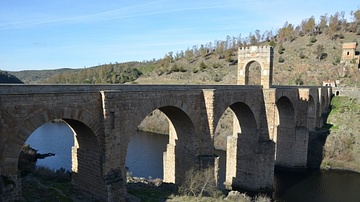
Image
Alcántara Bridge
The Roman bridge at Alcántara in Extremadura, Spain, is one of the finest examples of Roman bridge-building and a monumental feat of engineering. It was built over the Tagus River in the ancient Roman province of Lusitania between 104 and...
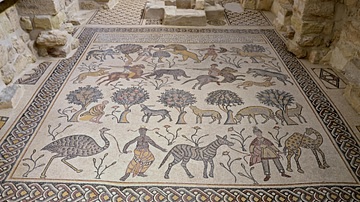
Image
Mosaic in the Memorial Church of Moses, Mount Nebo
6th century CE mosaic in the Diakonikon Baptistry of the Memorial Church of Moses in Mount Nebo, Jordan. The mosaic, dating to 530 CE, is a large square divided into two sections. The top section depicts hunting scenes while the lower section...

Image
Xerxes' Inscription, Van
The cuneiform inscription of Xerxes (486-465 BCE) on the rock cliffs of Van, a city on the shores of Lake Van, eastern Turkey. Written in the three official languages of the Achaemenid Empire: Old Persian, Elamite and Babylonian, it proclaims...
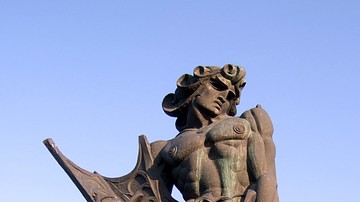
Image
Vahagn the Dragon Slayer
A modern statue of Vahagn, the figure from Armenian mythology who was famed for his slaying of dragons and association with the Sun. Sculpted by Karlen Nurijanyan. Near Yerevan, Armenia.

Image
Miniature of Aethelflaed
14th century CE miniature of Aethelflaed, Lady of the Mercians (r. 911-918 CE), as found in the Genealogical roll of the kings of England.
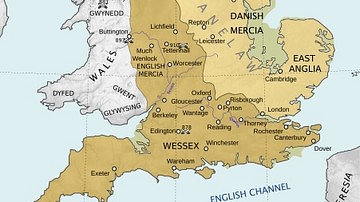
Image
England Around 910 CE
Map showing England around 910 CE, showing among others the Viking territories under the Danelaw as well as the English kingdoms of Mercia (at this point in time ruled by Aethelred, Lord of the Mercians (r. 881-911 CE) and Wessex.

Image
English Midlands c. 912 CE
Map showing the English midlands around 912 CE, including the kingdom of Mercia which was reigned by the renowned Aethelflaed, Lady of the Mercians (r. 911-918 CE) at the time.
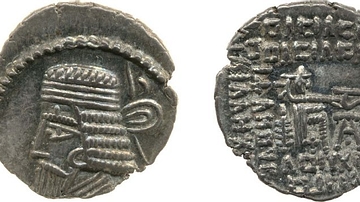
Image
Vologases I
Parthian coin depicting Vologases I of Parthia. Minted in Ecbatana between 51-78 CE, it weighs approximately 3.7 grams and measures 19 millimeters in diameter. (British Museum, London)
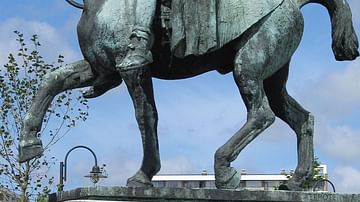
Image
Statue of Corbulo
Statue of the 1st century CE Roman general Gnaeus Domitius Corbulo in Voorburg, Netherlands, by sculptor Albert Termote (1887-1978 CE)
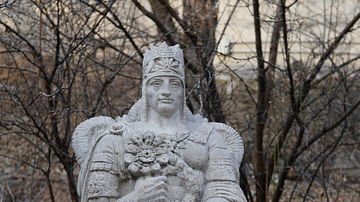
Image
Statue of Tigranes the Great
Statue of Armenian king Tigranes the Great (r. c. 95 - c. 56 BCE), on the Republic of Armenia Presidential Palace grounds. Sculptor: Levon Tokmajyan